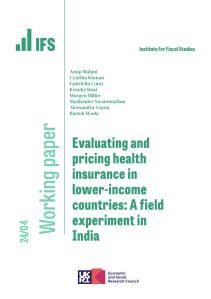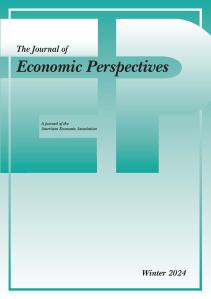Property taxes in developing countries are plagued by noncompliance and can exacerbate liquidity constraints. We characterize optimal enforcement and taxation policies as functions of revenue elasticities and measures of taxpayer hardship. We estimate these parameters using multiple sources of variation and administrative data from Mexico City. Both rate increases and enhanced enforcement raise revenue, but liquidity constraints also shape taxpayer behavior. Despite the presence of liquidity constraints, we find that raising tax rates increases welfare. In contrast, enforcement generates higher private costs than welfare benefits. On the margin, welfare-maximizing governments would prefer to increase tax rates rather than enhance enforcement.
This paper was produced as a part of CEPR's Discussion Paper Series (DP15983).
Authors

Associate Director
Anne is head of the tax and development group at IFS and an honorary faculty member at UCL. Her work focuses on tax policy in lower-income countries.

Research Fellow University of Notre Dame
Alejandro is an IFS Research Fellow and an Assistant Professor of Development Economics at the University of Notre Dame.

Karina Ramírez Arras
Report details
- Publisher
- IFS
Suggested citation
A, Brockmeyer and A, Estefan and K, Ramírez Arras. (2021). Taxing property in developing countries: theory and evidence from Mexico. London: IFS. Available at: https://ifs.org.uk/publications/taxing-property-developing-countries-theory-and-evidence-mexico (accessed: 27 April 2024).
Related documents
More from IFS
Understand this issue

Spring Budget 2024: What you need to know
7 March 2024

The £600 billion problem awaiting the next government
25 April 2024

A mess has been made of Child Benefit, and the clear-up operation may not be easy
29 March 2024
Policy analysis

Recent trends in and the outlook for health-related benefits
19 April 2024

4.2 million working-age people now claiming health-related benefits, could rise by 30% by the end of the decade
19 April 2024

Oil and gas make Scotland’s underlying public finances particularly volatile and uncertain
27 March 2024
Academic research

Evaluating pricing health insurance in lower-income countries: A field experiment in India
14 March 2024

Does the value-added tax add value? Lessons using administrative data from a diverse set of countries
9 February 2024

The menopause "penalty"
18 March 2024